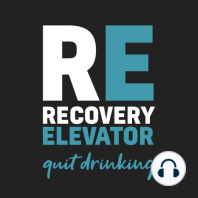38 min listen
RE 289: Co-occurring Issues
ratings:
Length:
42 minutes
Released:
Aug 31, 2020
Format:
Podcast episode
Description
Early took their last drink November 16, 2019. With almost 8 months (at the time of recording) this is their story of living alcohol free (AF). Odette’s weekly installment of: Finding the Better You. Co-occurring disorders or dual diagnosis describes a person who has more than one medical issue either with two diseases simultaneously or one disease successively after the other. These may be mental or physical. Odette reminds us that we are not alone. [5:23] Odette introduces Early. Early is 32 years old and living off the grid on the Ozark Plateau. They have 3 dogs who are their very best friends. For work they go back and forth between migrant farm work and restaurant service industry. For fun they like to learn about the area surrounding them, the plants and animals. Also chopping wood and the other living in the woods chores. Living off the grid means that Early is not connected to the electrical power grid & any city water or sewage. They have solar power and collect rain water or spring water. They have a composting outhouse. Early says they are connected to the earth in a way that feels more ethical to them. [8:33] Can you give listeners some background on your drinking? Early said that their whole life has been characterized by very intense addiction. The first drink they had was a stolen Miller High Life at the age of 10. The first blackout came at 14, drinking in the mornings and vomiting in their sleep came at 16. They were drawn to alcohol due to being socially awkward and having few friends. Being a deviant led them into a world of acceptance. As an adult, along with therapy and their diagnosis as being on the spectrum, these factors make sense now. By 18 Early was drinking daily and that’s the first time they wanted to stop drinking. Willpower didn’t work and AA wasn’t the avenue they wanted to take. Between the ages of 18 and 31 they tried many times to quit. [11:44] When did you receive your diagnosis? Early said at 29 there was an incident in which they sexually assaulted their best friend. It never would have happened if they had not been under the influence of alcohol. After that they checked themself into a mental hospital for help. There they were diagnosed with bipolar disorder. Early’s therapist post that also diagnosed them with Autisms Spectrum disorder and PTSD from childhood sexual abuse. [13:43] What went through your mind after all these diagnoses? Early said leaving the mental hospital they were detoxed from alcohol and also on new anti-psychotic medicine for brand new diagnoses. They weren’t given any tools on how to handle not drinking and their only coping ability from the past 20 years, so to cope, they drank. [16:20] What happened after you left the hospital? Early said that they knew they needed to remove alcohol but had no tools. They would white knuckle it for a few days and then drink. Over time they began to find different tools that worked for them. They incorporated yoga, drinking more water, changing their diet, getting regular sleep (basic needs as Early says!). However, the feeling of shame and the belief that they are a bad person remained. Early began drinking in secret and isolating themselves in-between moments of white knuckling sobriety. [20:12] You seem to have such grit. Where did this come from and how did you find the determination to keep trying? Early said their last night of drinking was an average night of drinking. The change began a year ago when their father passed away suddenly. They saw life from outside their own for the first time. That winter they declared that they would do anything to get sober. They kept trying and using all the tools they had learned over the years of trying to quit. They stopped feeling sorry for themselves and that helped to cut the shame. Early learned they were worthy of love and happiness. They describe themselves as a hard headed stubborn determined person and that might be the grit that is seen. [27:51] How
Released:
Aug 31, 2020
Format:
Podcast episode
Titles in the series (100)
020: I didn't have to drink over that |Using alcohol to cope with life struggles: Dez, with 18 months of sobriety shares her experience by Recovery Elevator ?
